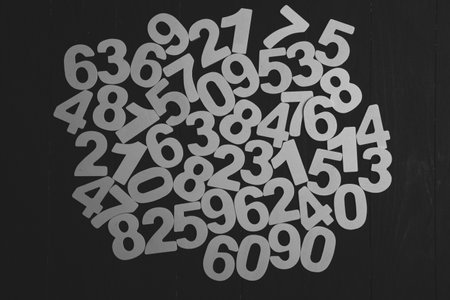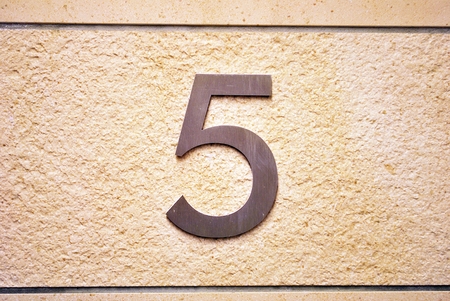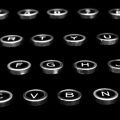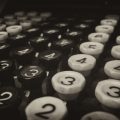Introduction to Numerology in British Society
Numerology, the study of numbers and their mystical significance, has a surprisingly rich history within British society. While it may not always occupy centre stage in mainstream culture, the subtle influence of numbers on personal and social decisions has persisted from ancient times to the present day. In the UK, numerology first gained traction during the mediaeval era, when scholars and mystics sought to decipher patterns in life through numerical systems rooted in Pythagorean and Kabbalistic traditions. Over time, these practices mingled with local customs and beliefs, quietly shaping attitudes towards fate and compatibility.
In contemporary Britain, numerology enjoys a low-key yet enduring presence. It often surfaces in popular media, lifestyle columns, and even casual conversations about luck and relationships. Today’s Britons may approach numerology with characteristic scepticism or humour, but many still find comfort or intrigue in exploring their “life path” or “destiny” numbers—especially when it comes to matters of the heart. The idea that numbers can reveal insights into marital compatibility remains a topic of interest for couples seeking guidance before tying the knot. As British culture continues to blend tradition with modernity, numerology’s role as a tool for self-reflection and relationship assessment proves as relevant as ever.
2. How Numerology Evaluates Compatibility
In the context of British marriages, numerology offers a fascinating lens through which to assess compatibility between partners. Unlike conventional matchmaking, numerological evaluation is grounded in the calculation of core numbers derived from a couple’s birth dates and names. These numbers are then interpreted according to time-honoured traditions, with a nod to British sensibilities—favouring practicality, subtlety, and a dash of scepticism.
The Core Numerological Numbers
There are several key numbers at play when considering marital compatibility:
- Life Path Number: Reflects one’s life journey and inherent personality traits.
- Expression (Destiny) Number: Reveals one’s natural talents and potential.
- Soul Urge Number: Discloses inner desires and motivations.
- Birthday Number: Adds nuance by highlighting particular strengths or tendencies.
Calculating Compatibility: The British Way
To begin, each partner calculates their own set of core numbers. In Britain, where tradition meets modernity, many couples may approach this process over a cup of tea or during a quiet evening at home—reflecting the value placed on privacy and introspection. Once calculated, the next step is to compare these numbers to identify harmonies and challenges. Below is an example table illustrating how Life Path Numbers interact:
| Partner 1 Life Path | Partner 2 Life Path | Compatibility Notes (UK Context) |
|---|---|---|
| 1 | 5 | Dynamic duo; both value independence—a trait often celebrated in British partnerships. |
| 4 | 7 | Practical meets philosophical; can create stability reminiscent of enduring British values. |
| 2 | 8 | Supportive but may need clear boundaries—echoing the British preference for respectful distance. |
| 6 | 9 | Nurturing and idealistic; aligns well with community-focused aspects of British society. |
Cultural Expectations and Interpretation
The British approach to numerology tends to emphasise moderation and realistic expectations. While some might enjoy whimsical references to fate in marriage speeches or family gatherings, there remains an underlying appreciation for evidence-based decision-making. As such, numerological compatibility is often considered as a supplementary tool rather than a definitive answer—much like consulting the weather before planning a countryside wedding, it informs without dictating choices.

3. Popular Number Pairings and Their Meanings in the UK
Numerology has found its own place in British culture, with certain number pairings regularly highlighted among couples seeking compatibility. While numerological traditions have continental origins, many British couples and enthusiasts interpret these connections with a local flavour, often blending traditional meanings with modern sensibilities. For instance, the pairing of Life Path numbers 2 and 6 is widely regarded as harmonious; the number 2 signifies diplomacy and cooperation, while 6 represents responsibility and nurturing – qualities much admired in British partnerships that value mutual support and practical affection. Another popular combination is 4 and 8, which resonates particularly within the UK’s pragmatic approach to relationships. The number 4’s grounding energy complements the ambitious drive of number 8, creating a duo that is seen as stable and goal-oriented – fitting for couples who prize reliability and long-term planning, traits often associated with the so-called “stiff upper lip” attitude. On the other hand, pairings like 1 and 5 are sometimes viewed with caution by British numerologists. Number 1 stands for independence and leadership, while 5 brings change and freedom; together they can spark excitement but may also challenge the traditional British preference for steadiness over unpredictability. Anecdotally, some relationship counsellors in the UK have noted how these numerical insights are increasingly sought after by engaged or long-term couples hoping to better understand their dynamic before making commitments such as marriage. In summary, while numerology may not be universally embraced in Britain, certain number pairings – especially those reflecting harmony, stability, and shared values – continue to inform how some couples interpret their bond through a uniquely British lens.
4. Numerology versus Traditional British Views on Marriage
When examining the compatibility of couples, numerology offers a unique lens, one that often contrasts with longstanding British perspectives on what makes a marriage harmonious. In numerology, numbers derived from names and birth dates are believed to influence personal traits and relationship dynamics. By comparison, traditional British attitudes towards marital harmony have historically prioritised shared values, social background, mutual respect, and practical considerations over mystical or esoteric factors.
To provide clarity, the table below outlines key differences between numerological compatibility and traditional British views:
Aspect |
Numerological Approach |
Traditional British View |
|---|---|---|
Compatibility Basis |
Calculated numbers indicating harmony or conflict | Shared culture, upbringing, class, religion, or interests |
Decision Factors |
Date of birth, name vibrations, destiny numbers | Family approval, social status, personal character |
Perceived Influence |
Karmic and cosmic alignment of individuals | Stability, reliability, and mutual effort in daily life |
Role in Modern Britain |
Niche interest; sometimes used for fun or curiosity | Still influential in many communities; evolving but resilient traditions |
This comparison highlights how numerology appeals to those seeking deeper or alternative explanations for relationship success—often as a supplement rather than a replacement for established norms. In everyday British life, while some may consult numerological readings before making significant decisions like marriage, the majority still lean on pragmatic assessments grounded in tradition. Nonetheless, both approaches reflect a common human desire: to find assurance and meaning when embarking on lifelong partnerships.
5. Real Life Stories: British Couples and Number Compatibility
In the United Kingdom, numerology is often viewed with a curious blend of scepticism and intrigue. Yet, for some couples, it has played a subtle but meaningful role in their relationship journeys. Take, for instance, Emily and James from Manchester, who both discovered that their life path numbers complemented each other—Emily a nurturing 6 and James an adventurous 5. They recount how this insight provided reassurance during periods of change, helping them to embrace their differences as strengths rather than sources of friction.
Another example comes from Priya and Tom in Birmingham. Before getting married, they consulted a numerologist at the suggestion of Priya’s aunt. The expert calculated their compatibility based on their names and birthdates, noting a natural harmony between their numbers. While initially hesitant, Priya admits that the positive reading gave her confidence in moving forward with wedding plans. Tom, ever the pragmatist, saw it as a fun exercise but appreciates how it brought an additional layer of excitement to their engagement.
Not all stories are about perfect matches, however. Sarah and Olivia from Bristol found that their numbers—an assertive 1 and a sensitive 2—suggested potential challenges in communication. Rather than feeling discouraged, they used this knowledge to foster more open conversations about expectations and emotional needs within their partnership. For them, numerology became less about destiny and more about self-awareness.
These anecdotes highlight the British tendency to approach numerology with a balance of humour and practicality. Whether taken seriously or simply as an engaging talking point over tea, number compatibility offers couples across the UK another lens through which to understand themselves and each other.
6. Criticisms and Scepticism in Britain
While numerology has its enthusiasts in the UK, it is important to acknowledge that the practice faces considerable scepticism and criticism within mainstream British society. The British cultural landscape, which often prides itself on rationality and evidence-based thinking, tends to view numerology with a critical eye. Many Britons see the system of assigning meaning to numbers as lacking scientific credibility, frequently grouping it with other forms of pseudoscience. This scepticism is rooted in the strong tradition of scientific inquiry that underpins much of British education and public discourse.
From a scientific perspective, critics argue that there is no empirical evidence supporting claims that numbers derived from one’s birth date or name can influence personality traits or marital compatibility. Psychologists and statisticians point out the subjective nature of numerological interpretations, likening them to confirmation bias—where individuals notice patterns that fit their beliefs while ignoring contradictory evidence. Furthermore, many British scientists highlight that the methods used in numerology lack reproducibility and do not adhere to rigorous standards of peer review or experimental design.
Culturally, Britain’s history of religious diversity and secularism contributes to a general wariness towards divinatory practices. While some may enjoy numerology as a harmless pastime or a quirky aspect of wedding planning, others express concern that it could lead people to make important life decisions based on superstition rather than reasoned judgment. Media outlets and popular commentators often treat numerology as entertainment rather than legitimate guidance, reinforcing its marginal status in British culture.
Nevertheless, despite these criticisms, numerology retains a niche following among those who appreciate its symbolic value or find comfort in its rituals. The ongoing debate over its validity reflects broader questions about the role of tradition, belief, and evidence in modern British society.
7. Conclusion: The Future of Numerology in British Marriages
Reflecting on the role of numerology within contemporary British marriages, it becomes clear that its presence is both nuanced and evolving. While numerology has never occupied a mainstream position in UK marital traditions—unlike more familiar cultural rituals—it has nonetheless carved out a niche among those who seek alternative forms of meaning or reassurance when making significant life decisions, such as choosing a lifelong partner. In recent years, there has been a subtle increase in interest, perhaps driven by a broader resurgence of spiritual and holistic approaches to wellbeing, which includes astrology, mindfulness, and other esoteric practices. However, numerology remains largely on the periphery, often regarded with a blend of curiosity and scepticism typical of British pragmatism. It does not dominate wedding planning or compatibility discussions, but quietly persists as an optional lens for some couples. As British society continues to diversify and younger generations display openness towards unconventional perspectives, numerology may well continue to adapt—moving from mystical margins into more accepted territory, or simply remaining a quirky footnote in the tapestry of marriage customs. Whether gaining traction or losing ground, its future will likely depend on how successfully it can integrate with modern values while respecting the reserved nature of British culture.


